|
Getting your Trinity Audio player ready...
|
In a groundbreaking interview, Dr. Michael Karlfeldt, ND, PhD, engaged with Dr. Joseph Antoun, MD, PhD, MPP, to unravel the intricacies of fasting as a therapeutic intervention in cancer treatment. This discussion offers invaluable insights into the emerging field of nutritional therapy for cancer, highlighting the potential of fasting and fasting-mimicking diets (FMDs) in revolutionizing patient care. This blog delves into the critical aspects of their conversation and expands the discussion by integrating findings from recent medical journal articles.
The Concept of Fasting in Cancer Treatment
Historically, fasting has been a part of various cultural and religious practices, but only recently has its role in medicine, particularly in cancer therapy, come to light. The principle of differential stress resistance lies at the core of this approach. In essence, fasting helps protect healthy cells while sensitizing cancer cells to chemotherapy and other treatments. This dichotomy arises because cancer cells, unlike normal cells, lack the ability to adapt to nutrient-scarce environments, making them more vulnerable when the body is in a fasting state.
Recent studies have supported the idea that fasting can enhance the effectiveness of chemotherapy while reducing its side effects. For instance, a study published in the journal “Cancer Cell” demonstrated that short-term fasting protects healthy cells from the toxic impacts of chemotherapy, while simultaneously sensitizing cancer cells to the treatment.
Fasting-Mimicking Diets (FMDs) and Their Development
While traditional fasting involves complete abstinence from food, which can be challenging and potentially risky for cancer patients, FMDs offer a groundbreaking alternative. Developed in collaboration with Professor Valter Longo, FMDs are designed to mimic the physiological effects of fasting while providing the body with essential nutrients. This approach reduces the stress and risks associated with prolonged fasting, making it a more feasible and comfortable option for patients.
The development of FMDs represents a significant step forward in nutritional therapy for cancer. These diets are carefully formulated to deliver the benefits of fasting without the associated nutrient deficiencies. A study in the “Journal of Translational Medicine” highlighted the safety and feasibility of FMDs in cancer patients, showing promising results in terms of both treatment efficacy and quality of life.

Insights from Clinical Trials
Ongoing clinical trials are critical in assessing the impact of fasting and FMDs on cancer treatment. These studies aim to evaluate not only the short-term benefits but also the potential for long-term remission and improved survival rates. One such trial, as mentioned in the
interview, focuses on breast cancer patients undergoing chemotherapy. Preliminary results suggest that patients who adopt fasting or FMDs experience fewer and less severe side effects from chemotherapy, potentially enhancing their overall treatment experience and outcomes.
Moreover, research in the “Science Translational Medicine” journal provides evidence supporting the idea that fasting cycles can retard tumor growth and sensitize a range of cancer cell types to chemotherapy, irrespective of the dietary composition or calorie count. This finding underscores the universality of fasting’s potential benefits across various cancer types.
Personalized Nutrition and Cancer Therapy
The importance of tailoring dietary interventions to individual patients is a recurring theme in the interview and current research. Given the diversity of cancer types and patient responses, a one-size-fits-all approach to fasting or FMDs is insufficient. Personalized nutrition takes into account the unique characteristics of each patient’s cancer, their overall health, and their specific nutritional needs.
This individualized approach is supported by a study in “The Lancet Oncology,” which emphasizes the necessity of considering genetic, metabolic, and nutritional status differences when designing nutritional interventions for cancer patients. Personalized nutrition plans can help maximize the therapeutic benefits of fasting and FMDs while minimizing potential risks and side effects.
Broader Implications for Health and Longevity
Dr. Antoun’s work extends beyond cancer treatment, encompassing the broader implications of fasting and nutrition for overall health and longevity. Research indicates that fasting and caloric restriction can have profound effects on aging and age-related diseases. A study in “Cell Metabolism” reports that intermittent fasting can lead to improved markers of health and longevity, including reduced inflammation, enhanced insulin sensitivity, and lower risk of chronic diseases.
These findings suggest that the principles of fasting and nutritional therapy could be applied more broadly to prevent and treat a range of age-related conditions, not just cancer. This perspective aligns with the growing recognition of food as medicine and the importance of dietary choices in maintaining health and preventing disease.

Challenges and Future Directions
Despite the promising potential of fasting and FMDs in cancer treatment and overall health, significant challenges remain in integrating these approaches into mainstream medical practice. One major hurdle is the lack of widespread awareness and understanding among healthcare professionals regarding the therapeutic benefits of fasting and nutrition-based treatments.
Future research should focus on expanding clinical trials, exploring the mechanisms underlying the benefits of fasting, and developing standardized protocols for implementing fasting and FMDs in clinical settings. Additionally, educational efforts are needed to increase awareness among healthcare providers and patients about the role of nutrition in disease prevention and treatment.
Conclusion
The conversation between Dr. Karlfeldt and Dr. Antoun opens a window into the exciting possibilities of fasting and nutrition in cancer treatment and beyond. By integrating the principles of differential stress resistance, personalized nutrition, and a food-as-medicine approach, we can revolutionize how we treat cancer and promote health and longevity. As research continues to evolve, it becomes increasingly clear that nutrition and fasting hold the key to unlocking new frontiers in medical treatment.
Join the Cancer Breakthroughs 2.0 Summit
Prepare to be inspired and empowered at the upcoming Cancer Breakthroughs 2.0 Summit. Hosted by the esteemed Dr. Michael Karlfeldt, this extraordinary event is crafted for anyone touched by cancer – be it patients, family members, or those interested in preventative medicine. Seize this unique opportunity to engage with top leaders in the field, gain insights from cancer survivors who have triumphed over incredible odds, and absorb knowledge from the brightest minds in integrative oncology. This summit transcends traditional treatments, spotlighting a plethora of options to combat cancer, achieve a cancer-free state, and support your body’s natural healing process. Don’t miss this life-changing summit, an avenue for you to take control of your health and embark on a transformative journey.




Reading about the potential of fasting and fasting-mimicking diets (FMDs) as therapeutic interventions in cancer treatment brings a mix of emotions, especially considering my personal loss. My brother Eric, who we lost at the young age of 32 to stage 4 non-small cell carcinoma, bravely fought his battle with cancer. If only we had access to or knowledge about such innovative nutritional strategies then, it makes me wonder if his treatment experience and outcomes could have been different.
The concept that fasting may protect healthy cells while making cancer cells more susceptible to treatment is fascinating and hopeful. The development of FMDs, offering a safer and more feasible option for patients, reflects the kind of innovative thinking needed in cancer care. It’s heartening to see ongoing clinical trials exploring these methods further, especially considering the preliminary results showing reduced side effects and potentially enhanced outcomes for patients undergoing chemotherapy.
The emphasis on personalized nutrition resonates deeply with me. Cancer is not a one-size-fits-all disease, and the treatment approaches, including dietary strategies, should reflect the individual’s unique condition and needs. It’s a reminder of how critical it is to consider each patient’s specific circumstances when designing treatment plans.
This has made me try Prolon’s Fasting Mimicking Diet, and I’ve found it to be easier than I thought to stick to and lose weight. I felt like it really had significant health benefits and impressively I even slept better.
This discussion between Dr. Karlfeldt and Dr. Antoun not only highlights the significance of nutritional therapy in cancer treatment but also points towards its broader implications for health and longevity. As someone who has experienced the pain of losing a loved one to cancer, the possibility that dietary interventions could play a role in cancer care is profoundly encouraging.
As we continue to explore the frontiers of cancer treatment, I hope that the insights from such research and discussions will become integral parts of comprehensive cancer care. I founded DrTalks to bring this kind of information directly from doctors to health consumers. We are on a mission to help 1 Billion people who need to hear this kind of information directly from the source. The upcoming Cancer Breakthroughs 2.0 Summit sounds like an incredible opportunity to learn more about these advancements and how they can be applied to help others facing this challenging journey.
For those who have explored fasting or FMDs in their or their loved ones’ cancer treatment, how was your experience? Did you find it beneficial in managing the side effects of chemotherapy or enhancing overall well-being? Sharing our stories can help foster understanding and offer support to others navigating similar paths.